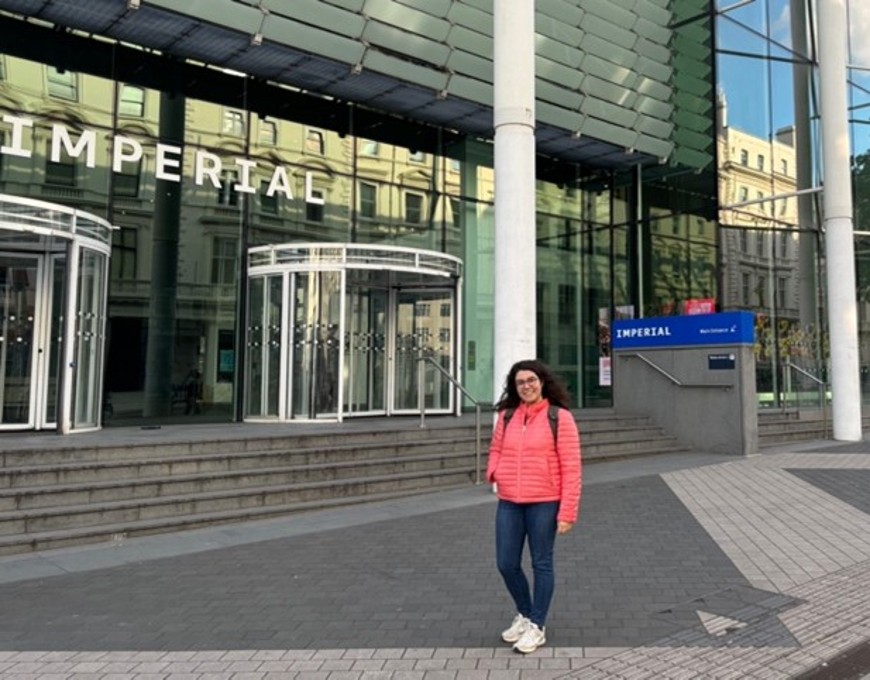Impressions of a research stay in London by Irem Ergenlioglu
Irem Ergenlioglu, from the Graduate School LSE, shares her experiences of her research stay abroad in London
2024/10/28 by Julia Detzer
Irem Ergenlioglu, a PhD student from the Koeppl group in the department of Electrical Engineering and Informational Technology took the opportunity to conduct a two month research at Imperial College London (ICL) in England. Her she shares her impressions and experiences.

“During the summer of 2024, I had the invaluable opportunity to undertake a two-month research secondment at Imperial College London, working in Professor Karen Polizzi's laboratory as part of the SYNSENSO Doctoral Network.
This experience was transformative both professionally and personally. I gained new technical skills, connected with leading scientists, and attended scientific conferences, all while living in one of the world's most dynamic cities. I will always look back on this time with immense gratitude and happiness.
Imperial College London is ranked 1st in the UK, 1st in Europe, and 2nd globally in the QS World University Rankings 2025. Therefore, I was excited to be in this scientific environment and try to get the most out of it.
Prior to my secondment, I connected with a postdoctoral researcher from Professor Polizzi’s lab who specializes in electrochemical biosensors. During my first week, we discussed potential projects, and he introduced me to a challenge posed by a commercial partner—developing a solution for the quality control of RNA vaccines. This was a new field for me, so I spent the initial weeks deepening my understanding of electrochemical biosensors and their detection mechanisms.
After conducting a thorough literature review, I proposed a solution and began experimental work. I learned how to perform electrochemical measurements and understood the critical factors in successful experimental design. By the end of my secondment, I had obtained promising results, which I plan to continue developing at TU Darmstadt in the coming months. This project highlighted the importance of interdisciplinary collaboration and broadened my research perspective.
In addition to my lab work, I attended two scientific conferences in London: the Engineering Biology Symposium at Imperial College London and the Chemical Biology Conference at the Francis Crick Institute. These events offered invaluable opportunities to engage with leading researchers and gain insights into their work, which greatly expanded my understanding of the field.
I am deeply grateful to everyone who made this experience possible, particularly my supervisor, Professor Heinz Koeppl, my secondary supervisor, Professor Karen Polizzi, TU Darmstadt Life Science Engineering Graduate School, and the SYNSENSO Marie Skłodowska-Curie Actions (MSCA) Doctoral Network.”